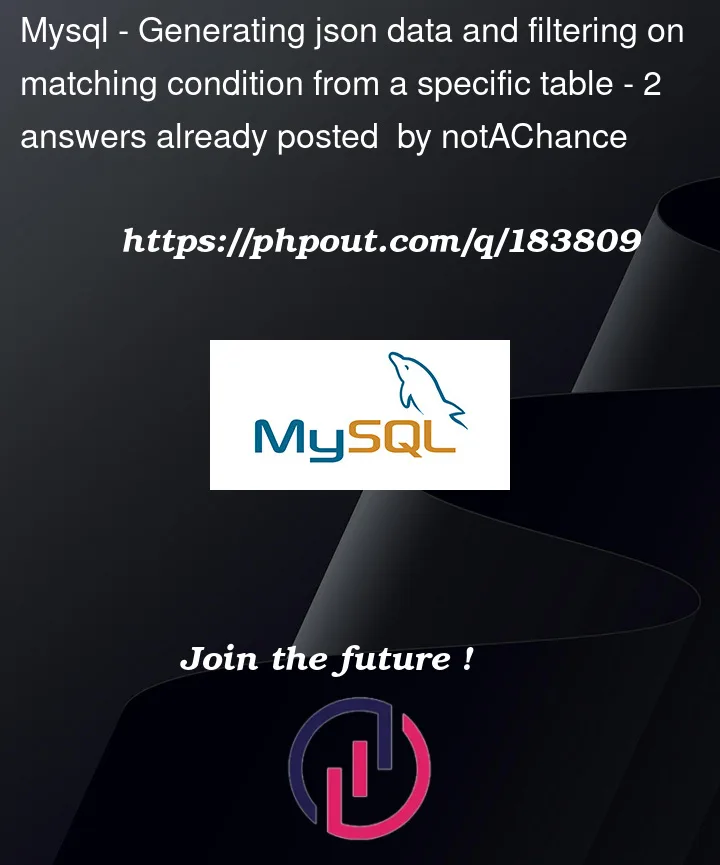Table "ORDER":
| ID | ORDERN_NUM |
|---|---|
| 1 | 123 |
| 2 | 321 |
| 3 | 456 |
Table "RECEIVERS":
| FIRST_NAME | ID | LAST_NAME |
|---|---|---|
| Pete | 1 | Tyler |
| Sarah | 1 | Bowden |
| Bart | 2 | Simpson |
Table "PRODUCTS":
| TYPE | ID |
|---|---|
| Towel | 1 |
| Pen | 1 |
| Spoon | 2 |
We can say "FIRST_NAME" and "TYPE" are primary keys for their respective tables, but that doesn’t matter for this question. The important part is that "ORDER" has primary key "ID", and "ID" is foreign key in "PRODUCTS" and "RECEIVERS".
I’ve tried to develop a single query, which allows the user to query on "RECEIVERS.FIRST_NAME". The query would then join on all three tables, and return everything related to "ID" = 1. So if I were to query on "Pete", I would be given back an object such as below:
[{
"ID": "1",
"ORDERN_NUM": "123",
"RECEIVERS": [{
"FIRST_NAME": "Pete",
"LAST_NAME": "Tyler"
},
{
"FIRST_NAME": "Sarah",
"LAST_NAME": "Bowden"
}],
"PRODUCTS": [{
"TYPE": "Towel"
},
{
"TYPE": "Pen"
}]
}]
I so far have this query:
SELECT COUNT(*),
JSON_ARRAYAGG(JSON_OBJECT('ID', o.ID, 'RECEIVERS', r.RECEIVERS, 'PRODUCTS', p.PRODUCTS))
FROM ORDER AS o
INNER JOIN (SELECT ID,
JSON_ARRAYAGG(JSON_OBJECT('firstName', FIRST_NAME, 'lastName', LAST_NAME)) RECEIVERS
FROM RECEIVERS
GROUP BY ID) r on o.ID = r.ID
INNER JOIN (SELECT ID,
JSON_ARRAYAGG(JSON_OBJECT('type', TYPE)) PRODUCTS
FROM PRODUCTS
GROUP BY ID) p on o.ID = p.ID
WHERE RECEIVERS.FIRST_NAME = "Pete"
However when searching on FIRST_NAME = 'Pete', it will indeed bring all "ORDER"s back associated with Pete with all "PRODUCTS" in a nested array, and Pete’s details in a nested array, however it will not bring back Sarah as a "RECEIVER".
How can I accomplish this?




2
Answers
You can solve your problem with an
EXISTSexpression right after the join operations, where you check on matching ids and matching first_name.Here’s the full query:
Check the full demo here.
If I follow you correctly, the problem is with the
whereclause of the query; it filters on orders that belong to Tyler, while you seem to want orders that have the sameidas those that belong to Tyler.You could simply change this:
To:
In your query:
We could also express this logic with another join: